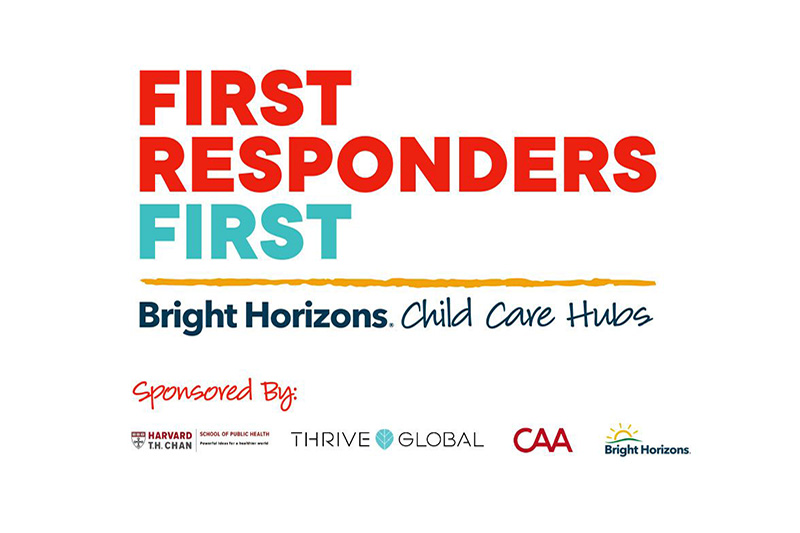A guest post from Erin Sexton, Academic Advisor at EdAssist.
As an Academic Advisor with EdAssist, I speak to corporate employees across various industries each day about going back to school. Getting back into the classroom and into "study mode" is really daunting for many; maybe it's been years since they stepped foot in a classroom, maybe they're thinking about college for the first time. What I have found is that for the most part, their apprehension has been increasingly less about taking that first step, and more about how education has evolved over time, and whether or not they are ready to log-in to their first online class.
In some cases, entrepreneurs favor students "who have juggled multiple commitments while earning their degree," says Susan Fontana, regional vice president of Manpower, a global recruiting firm, in this U.S. News & World Report piece. "You demonstrate exceptional time management and multitasking skills and you are able to prioritize with the best of them." Equally beneficial to both you and your company is that you are able to apply what you learned in the classroom to your job in real time. Your employer benefits from your ever-expanding acumen and you can reinforce what you learned by applying last night's case study to today's business challenge. In addition, you add an amazing credential to your resume that is going to supplement years of hard work and professional experience. What you won't put on your resume is the word online.
For many schools like University of Phoenix, you would be hard-pressed to find someone that wasn't familiar with their online presence. However, for schools like Colorado State University and Penn State, who offer amazing, robust World campuses, all you'll see on your resume is the institution's name. And then there are new players, like Patten University, that are revolutionizing online education by offering a competency-based learning model that's ideal for the adult learner. Unless, of course, you are asked straight-out, "did you earn your degree online or on campus?". Then, you should answer honestly (and proudly!) that you earned it online.
At EdAssist we recommend Regional Accreditation as this is the more stringent accrediting body and allows more transferable credits, either within the same degree level or up to the Master level. You'll also want to find out your specific program of interest's accreditation as well. For example, I recommend that an MBA be AACSB Accredited. Reputable accreditations such as these will ensure that the curriculum offered is solid and on par with that offered on campus.
Another thing to consider is the school's Support Services. Kelsey Sheehy, an education reporter at U.S. News, does a great breakdown of what to look for in her piece Online Degree Programs: How to Tell the Good From the Bad.
In my experience as an Academic Advisor, this is definitely something that adult learners are concerned about. Unlike in the classroom, there's no hiding in the back row and you can't get by with looking down at your notes like you're looking for the answer. For example, you might be called upon to contribute to a blog where everyone will to be able to see what you write. Fellow students will comment and challenge what you posted and you'll be forced to defend your post or graciously change your stance. Do some students shirk through the class doing the bare minimum and somehow still get a passing grade? Sure! If you want to be that type of student, there is no one to stop you. However, you must ask yourself: what's the point? If you are making the investment on your time and finances, why not try your best and be the most engaged student possible? If this sounds like too much, then you're not ready to go back to school.
Additionally, online students do have access to professors and there are networking opportunities with your fellow classmates. The nature of these interactions has just changed. Remember when social media took hold and people were concerned this would replace real, lasting relationships? In reality, the opposite has happened: This world of social media gives scope to everyone to express and share ideas. Our virtual world is multidimensional and adds depth to so much of what we do. Education is no exception. You now have the opportunity to engage with a classmate from a competing company or on another coast with a different perspective. This leads to richer, ultimately more meaningful discussions.
Luckily, more reputable institutions have entered the market and raised the level of competition. A Survey of Online Learning by the Babson Survey Research Group and the College Board discovered that enrollment in online courses now surpasses 6.7 million students: "The rate of growth in online enrollments remains extremely robust, even as overall higher education enrollments have shown a decline," said study co-author Jeff Seaman, Co-Director of the Babson Survey Research Group. If you couldn't tell already, I am a huge proponent of online learning for the professional juggling numerous responsibilities.
This modality offers flexibility and solid programming for the right student: someone who knows their learning style and is ready to make the investment in themselves. It's no coincidence that the top three schools, across all of EdAssist's clientele, are online institutions. Online regionally accredited programs are not only a viable option; they are the best option for most of my clients.
As an Academic Advisor with EdAssist, I speak to corporate employees across various industries each day about going back to school. Getting back into the classroom and into "study mode" is really daunting for many; maybe it's been years since they stepped foot in a classroom, maybe they're thinking about college for the first time. What I have found is that for the most part, their apprehension has been increasingly less about taking that first step, and more about how education has evolved over time, and whether or not they are ready to log-in to their first online class.
What are employees' most common questions about online education?
Whether my clients's goals are to simply add a credential to their resume or to move up within their organization, there is anxiety about what to study or where to go, and now in the new millennium it's also about how online or on campus? Other questions that quickly follow are:- Can I be a successful virtual student?
- Will my employer value a degree earned online?
- Is the curriculum the same as on campus?
- Will I have meaningful interactions with my professor and classmates?
- Aren't all online programs for-profit diploma mills that are only after my money?
Can I be a successful virtual student?
The first thing I always encourage my clients to do is dig deep and decide if they have the discipline and time management skills to be an online student. Online learning offers tremendous flexibility and convenience, which is ideal for the adult learner who has competing responsibilities like a full-time job, family, fitness routine, and, dare I say it, a social life!? If you are able to carve out an a hour or two in the morning before the kiddos wake up or stay an extra hour at work one to two nights a week, establishing your own routine that works with your schedule will help you be successful.Will my employer value a degree earned online?
Probably the biggest fear about online programs is that current or prospective employers won't value it as much as a degree earned a traditional brick and mortar institution. This may have been true 10 years ago when this was considered a disruptive technology, but I am happy to report that this is simply not the case anymore. Going to school part-time, while working full-time and juggling numerous other responsibilities, tells your employer that you get stuff done! In fact, sometimes an online bachelor's degree can be an advantage in the eye of an employer.In some cases, entrepreneurs favor students "who have juggled multiple commitments while earning their degree," says Susan Fontana, regional vice president of Manpower, a global recruiting firm, in this U.S. News & World Report piece. "You demonstrate exceptional time management and multitasking skills and you are able to prioritize with the best of them." Equally beneficial to both you and your company is that you are able to apply what you learned in the classroom to your job in real time. Your employer benefits from your ever-expanding acumen and you can reinforce what you learned by applying last night's case study to today's business challenge. In addition, you add an amazing credential to your resume that is going to supplement years of hard work and professional experience. What you won't put on your resume is the word online.
For many schools like University of Phoenix, you would be hard-pressed to find someone that wasn't familiar with their online presence. However, for schools like Colorado State University and Penn State, who offer amazing, robust World campuses, all you'll see on your resume is the institution's name. And then there are new players, like Patten University, that are revolutionizing online education by offering a competency-based learning model that's ideal for the adult learner. Unless, of course, you are asked straight-out, "did you earn your degree online or on campus?". Then, you should answer honestly (and proudly!) that you earned it online.
Is the curriculum the same as on campus?
The most important thing to look for in an online program, and something your employer will take into consideration as well, is the school accreditation.At EdAssist we recommend Regional Accreditation as this is the more stringent accrediting body and allows more transferable credits, either within the same degree level or up to the Master level. You'll also want to find out your specific program of interest's accreditation as well. For example, I recommend that an MBA be AACSB Accredited. Reputable accreditations such as these will ensure that the curriculum offered is solid and on par with that offered on campus.
Another thing to consider is the school's Support Services. Kelsey Sheehy, an education reporter at U.S. News, does a great breakdown of what to look for in her piece Online Degree Programs: How to Tell the Good From the Bad.
Will I have meaningful interactions with my professor and classmates?
With any degree program there is some onus on the student. We are all adults and we know we have to take ownership of our education. Contrary to popular belief, there is a tremendous amount of accountability in an online classroom.In my experience as an Academic Advisor, this is definitely something that adult learners are concerned about. Unlike in the classroom, there's no hiding in the back row and you can't get by with looking down at your notes like you're looking for the answer. For example, you might be called upon to contribute to a blog where everyone will to be able to see what you write. Fellow students will comment and challenge what you posted and you'll be forced to defend your post or graciously change your stance. Do some students shirk through the class doing the bare minimum and somehow still get a passing grade? Sure! If you want to be that type of student, there is no one to stop you. However, you must ask yourself: what's the point? If you are making the investment on your time and finances, why not try your best and be the most engaged student possible? If this sounds like too much, then you're not ready to go back to school.
Additionally, online students do have access to professors and there are networking opportunities with your fellow classmates. The nature of these interactions has just changed. Remember when social media took hold and people were concerned this would replace real, lasting relationships? In reality, the opposite has happened: This world of social media gives scope to everyone to express and share ideas. Our virtual world is multidimensional and adds depth to so much of what we do. Education is no exception. You now have the opportunity to engage with a classmate from a competing company or on another coast with a different perspective. This leads to richer, ultimately more meaningful discussions.
Aren't all online programs for-profit diploma mills only after my money?
When online learning first hit the market, there was a perception that it was simply a ploy to allow for-profit schools to make money. But that was far from the truth. Sure, there were many "diploma mills" out there, but there were also regionally accredited schools with strong curricula and course offerings online, some of which just happened to be for-profit.Luckily, more reputable institutions have entered the market and raised the level of competition. A Survey of Online Learning by the Babson Survey Research Group and the College Board discovered that enrollment in online courses now surpasses 6.7 million students: "The rate of growth in online enrollments remains extremely robust, even as overall higher education enrollments have shown a decline," said study co-author Jeff Seaman, Co-Director of the Babson Survey Research Group. If you couldn't tell already, I am a huge proponent of online learning for the professional juggling numerous responsibilities.
This modality offers flexibility and solid programming for the right student: someone who knows their learning style and is ready to make the investment in themselves. It's no coincidence that the top three schools, across all of EdAssist's clientele, are online institutions. Online regionally accredited programs are not only a viable option; they are the best option for most of my clients.





